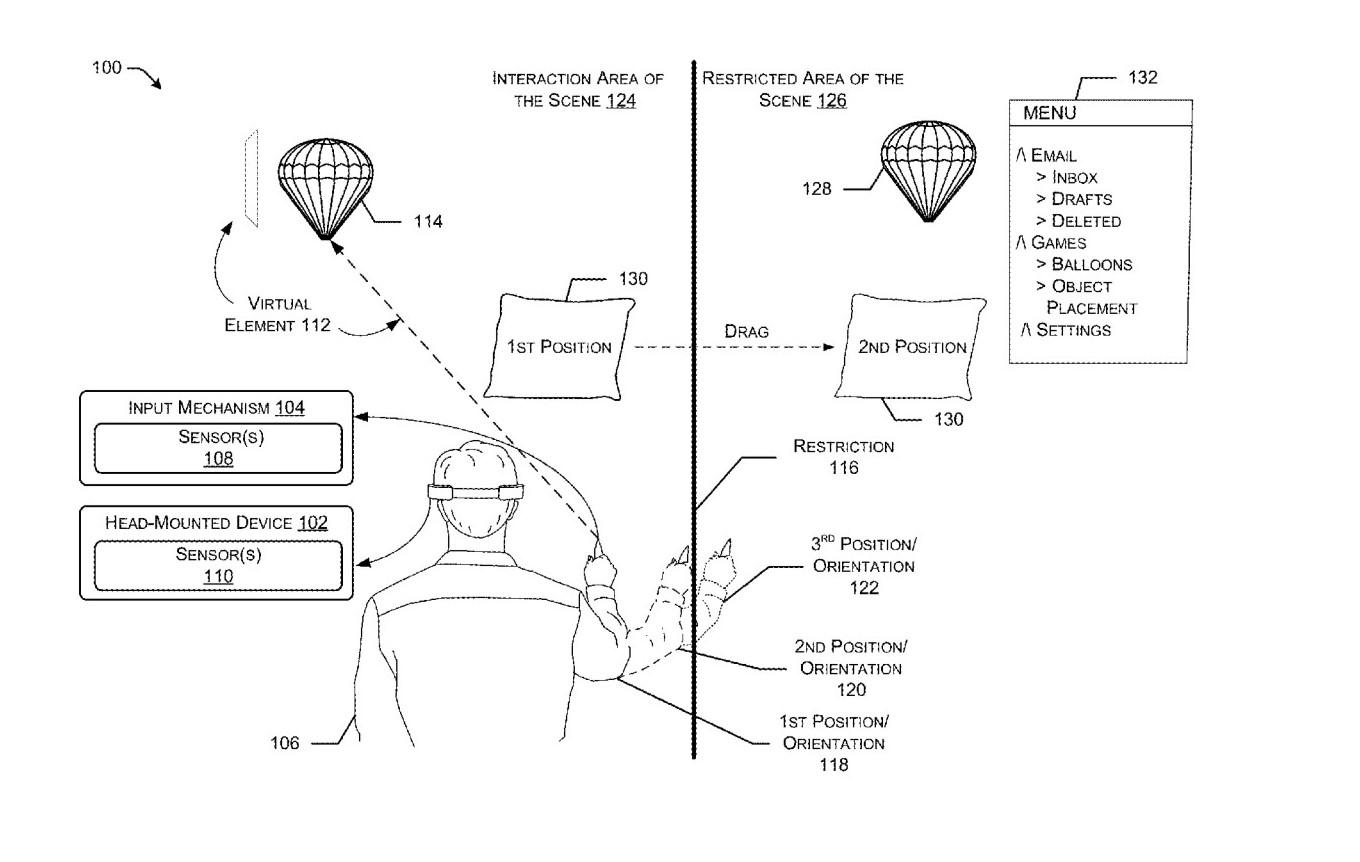Microsoft patent envisions more accessible mixed reality for people with restricted movement
The system outlined in the patent would make it easier for everyone to interact with virtual objects, no matter their position.

All the latest news, reviews, and guides for Windows and Xbox diehards.
You are now subscribed
Your newsletter sign-up was successful
Microsoft has been engaged in gradually making its offerings more accessible for individuals with disabilities for some time, most notably with recent tweaks to Windows and the Xbox Adaptive Controller. In a new patent, spotted by Windows United, Microsoft is exploring ways to extend those efforts to Windows Mixed Reality, envisioning a system that would make it easier for people with limited range of movement to interact with virtual objects.
The patent shows off a proposed system that would adjust to an individual's specific range of motion and rotation, placing virtual objects in a way so that they can still interact with them. The system would also scale a person's movements so that they can reach a greater area within the virtual space than their limitations would otherwise allow.
From the description:
Movement and / or rotation of an input mechanism can be tracked and analyzed to determine boundaries for a user's area. The range of motion and range of rotation of the user could be limited by a personal restriction for the user. Rotation in three-dimensional space can be additionally limited by an environmental constraint (eg a physical object in a room). Accordingly, the techniques described herein may take steps to consider the personal situation. Constraint and / or environmental constraint, thereby optimizing user interactions with the virtual object input mechanism.
Virtual worlds and augmented reality already offer an intriguing space for people with disabilities to explore places and perform actions that may otherwise prove difficult. Adding additional accessibility options when it comes to the way users interact with those experiences would serve to expand that.
As always, patents don't necessarily represent something that is guaranteed to make it to market, so this might remain only an idea. However, if such a system were to come to fruition, whether on its own or as the basis for something more robust, it could prove to be a boon for anyone with permanently or temporarily impaired movement.
All the latest news, reviews, and guides for Windows and Xbox diehards.

Dan Thorp-Lancaster is the former Editor-in-Chief of Windows Central. He began working with Windows Central, Android Central, and iMore as a news writer in 2014 and is obsessed with tech of all sorts. You can follow Dan on Twitter @DthorpL and Instagram @heyitsdtl.
